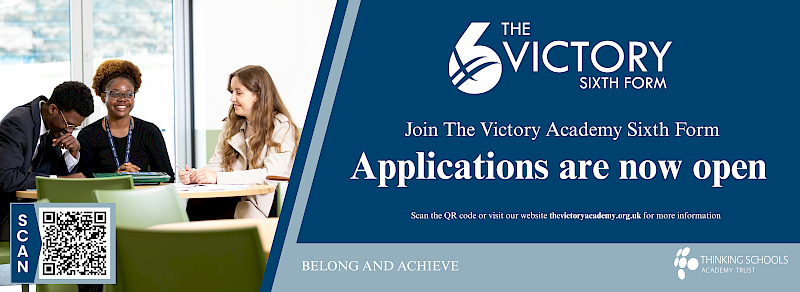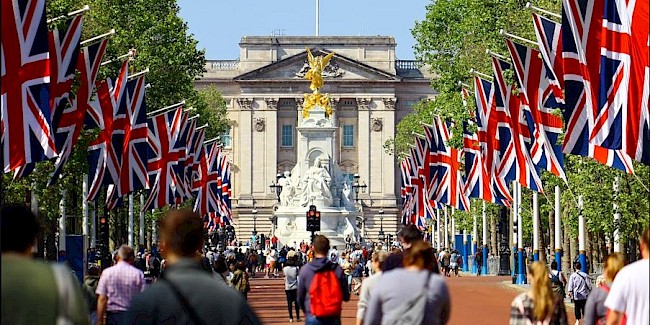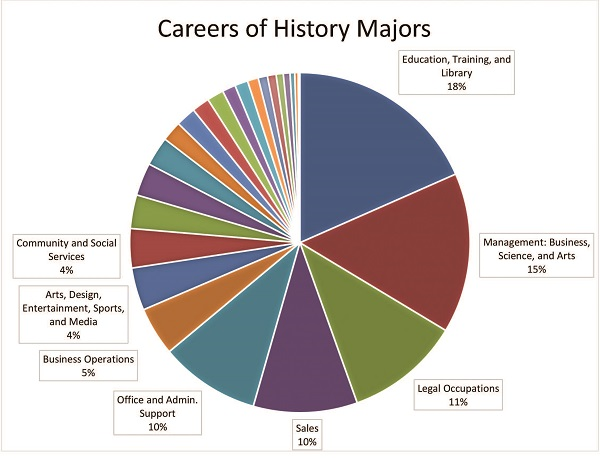
Applications for The Victory Academy Sixth Form are now open! To apply please click here.

Applications for The Victory Academy Sixth Form are now open! To apply please click here.
The History curriculum at The Victory Academy aims to provide our young people with powerful knowledge that will help them to understand the world we live in and the people we live alongside in our communities. The curriculum will provide students with an opportunity to engage with past societies in Britain, Europe and the world. Therefore, allowing students to integrate and interweave the wide ranges of historical voices and narratives as well as give students the skills to analyse and evaluate in an academic format.
Students will be encouraged to develop critical skills and an analytical frame of mind as they develop ‘second-order thinking’ such as causation, change, continuity, source analysis, significance and interpretations. Having studied history, students will come away with a deeper understanding of how past events have formed the world around them. Cultivating a sense of respect and pride for themselves and an understanding of cultural differences.

In Year 7, students will begin their historical journey learning about Anglo-Saxon England. Students will then go on to consider how the medieval world was connected by the Silk Road, the consequences of the Norman Conquest for England and then a more developed study to analyse the change in power and influence in medieval and early modern England. Through these studies, students will develop an understanding of how England was connected to wider societies in Europe and the continent of Africa. Students will learn about the significance of individuals including King William I, Lanfranc, Mansa Musa, and Leonardo di Vinci. Our students will end Year 7 with an understanding of how England was beginning to connect with the Americas. Throughout these studies, students will consider the impact on England economically, socially, politically and culturally.
In Year 8, will continue their study of History chronologically. Students will begin the year gaining an understanding of the context for the emergence of the British Empire. This will be followed with studies of revolution across Europe and America, Britain’s role in the enslavement of Africans, the development of the British Empire in India and a local study considering the significance of Chatham Dockyard in maritime history of this period. By the end of Year 8, students will have a greater understanding of the significant role Britain played in global history and the lasting impact of these events. Students will continue to study this history with a focus on economic, social, political and cultural significance. The experiences of individuals such as Olaudah Equiano, Hannah More and Admiral Nelson will play a key role in the narratives taught.
In Year 9, students will begin their study of history with a focus on the First World War. Our study of the significance of the British Empire will continue as we consider the role of soldiers from across the Empire in this global event. Students will then go on to consider the consequences of the First World War with a focus on the political changes of the Treaty of Versailles and the social changes on the status of women. Students will learn about the significance of the Holocaust, the decline of the British Empire with a depth study of decolonisation in India and a study of social change in Britain following the Second World War. In this study, students will consider the extent of change experienced by different groups in British society including women, black British and those who identify as LGBTQ+.
Throughout KS3, our students understanding of the world they live in will be developed through out of class learning that encourages them to learn about the wider impact of the events they have learned about in class with their teacher.
When starting their GCSE, students will have the opportunity use and build upon knowledge they have gained from Key Stage 3. We teach the Edexcel History GCSE (9-1). Students will begin with a detailed study of the history of Early Elizabethan England from 1558 to 1588. This will be followed by the thematic study of Medicine in Britain from c1250 to the present day, learning how ideas about the cause of disease and illness, prevention and treatment have changed through time. Students will use this learning to consider the impact of medicine on a historic environment: the British Sector of the Western Front during the First World War. For this study, students are required to analyse contemporary sources.
Students continue in Year 11 with a period study of the American West from c1835 to c1895. This study considers the changing narratives of the indigenous peoples, migration and settlement of the West, the cattle industry and law and order. Our students GCSE study ends with a modern depth study of Weimar and Nazi Germany 1918 -1939, looking at the narrative of Germany after World War I, to the rise of the Nazi dictatorship. This paper relies heavily on analysis of sources and interpretations.
Throughout KS4, our students will prepare for their external GCSE assessment through out of class learning that encourages them to recall required knowledge and develop their ability to apply this knowledge to exam question.
ASSESSMENT AT GCSE
Students who continue with their study of history at A Level consider two democracies in change; Britain between 1918 and 1997 and the USA between 1920 and 1955. This study considers the political, social and economic changes experienced during the twentieth century. Students will also study the witch craze in Britain, Europe and North America between c1580 and c1750 as a breadth and depth study.
All students much complete a non-examined assessment where they will choose one question to independently research and answer from their study of American history and civil rights. Students will be able to adapt the focus of their study in consultation with their History teacher.
Throughout KS5, our students will prepare for their external GCSE assessment through out of class learning that encourages them to recall required knowledge and develop their ability to apply this knowledge to exam question.
ASSESSMENT AT A LEVEL
What is History?
History is the study of the human past, including the events, people, and societies that have shaped it.
Studying History helps us to understand how different societies, cultures, beliefs and politics were in the past, and how these are significant for the present.
You can study a wide variety of History degrees, including those filtered by region, period or topic.
Why Study History?
By looking at the history of different cultures, we can build a strong understanding of why different people act the way they do. For instance, by looking at the history of the USA we can see why racial tensions continue to remain significant today. In understanding the history of India, we can see why the caste system remains in the subcontinent. This provides us with a broad cultural awareness.
History GCSE or A-level is also useful for vocational courses or school leaver careers in government, journalism, administration, marketing or law.
Studying History provides us with skills that are not confined to the study of the past. Skills of analysis are invaluable in many jobs, and the ability to analyse and prioritise information is vital to decision making. Studying History will develop our ability to think critically about what happened in the past, and how this shapes the lives of people around the world.
What Jobs could you get?
History equips you with the transferable skills that are highly prized by a range of employers. Graduates go on to careers in teaching, government, financial services, arts and media, marketing and consultancy, tourism, retail, manufacturing and engineering, law, libraries, archives and museums, voluntary and social services, IT and communications, medicine, the police and armed forces. Many graduates decide to progress to postgraduate studies, often entering into research and teaching positions.

Further Reading for History GCSE students
University information for History Degree